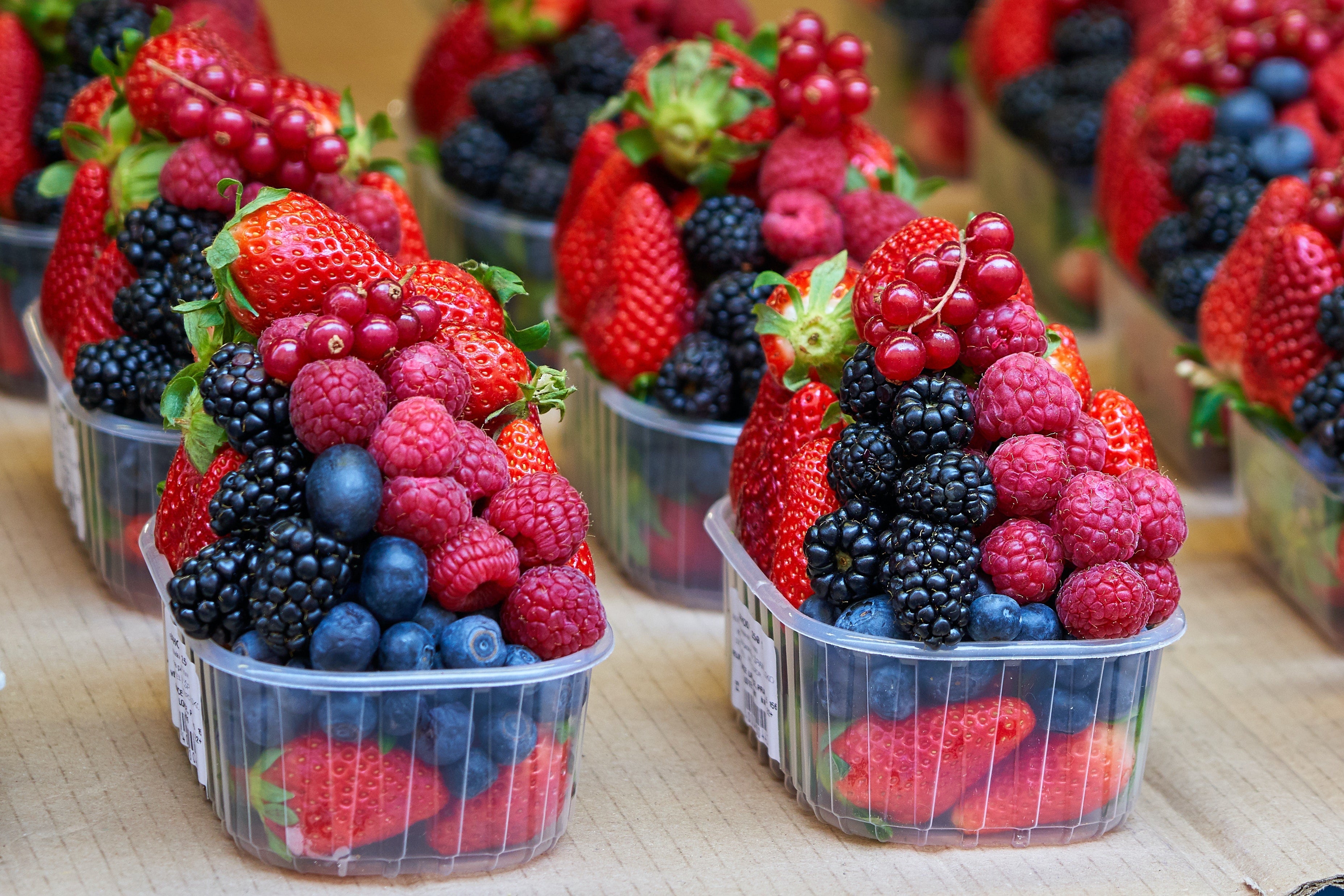With the daily grind of work demands, family obligations, and navigating through traffic with drivers who make you question humanity, stress is something we all experience. But when it becomes chronic, it can negatively impact our physical and mental well-being.
Cortisol, the body’s primary stress hormone, is released in response to stress and is responsible for many of the adverse effects we experience, such as weight gain, decreased immune function, and mood swings. But what if we told you that certain foods have the power to lower cortisol levels and reduce stress?
In this article, we’ll dive into the world of cortisol-lowering foods and show you how making simple changes to your diet can have a big impact on your stress levels.
First Things First, Why Is Cortisol Bad?
Any stressful situation can trigger cortisol production, whether it’s an argument with your spouse, a near miss on the road, or a work deadline. Regardless of the cause, your body secretes cortisol when your fight-or-flight response is triggered.
Cortisol is inherently a good thing. It causes your body to quickly mobilize glucose (sugar) into the blood. Increasing your blood sugar level fuels your muscles and gives your body a natural energy boost so that you can fight or flee a stressor.
When your cortisol levels stay elevated for extended periods due to chronic stress, however, it can take a toll on your body, causing a slew of adverse effects, including:[*]
- Weight gain
- Fatigue
- Poor sleep
- Digestive issues
- Headaches
- Difficulty concentrating
- Increased blood pressure
- Mood changes
- Menstrual cycle changes
- Immune system dysfunction
Foods That Reduce Cortisol Levels
Food is a powerful tool that can be used to reduce your cortisol levels. Let’s take a look at the top foods to include in your diet.
- Magnesium-Rich Foods
Did you know that nearly half of Americans are falling short of their recommended magnesium intake?[*] And guess what’s partially to blame? You guessed it, stress! When cortisol levels rise during stress, our bodies lose more magnesium than usual. This leads to a vicious cycle: stress causes magnesium depletion, and magnesium deficiency amplifies stress.[*]
The good news is that cortisol and magnesium appear to have an inverse relationship: the higher the magnesium, the lower the cortisol. This means that you can help break this cycle and reduce stress by incorporating magnesium-rich foods into your diet, including:
- Almonds and almond butter
- Avocados
- Black beans
- Cashews and cashew butter
- Dark chocolate
- Dark leafy greens
- Peanuts and peanut butter
- Pumpkin seeds
- Whole grains
- Yogurt
Another quick and easy source of magnesium is IQMIX, a sugar-free hydration mix. Each packet contains 750mg Magtein® (mg L-threonate)—a clinically studied form of magnesium that supports cognition and mood.[*]
- Omega-3 Rich Foods
Omega-3 fatty acids are a type of polyunsaturated fat. These healthy fats are considered essential, meaning they cannot be produced by the body and must be obtained through the diet.
Studies have linked low levels of omega-3s to increased cortisol levels.[*] Fortunately, the relationship appears to be bidirectional, so increasing your intake of these good fats may help reduce cortisol levels.
Although the science behind it is still being explored, it’s thought that omega-3s’ inflammation-balancing effects play a role in this relationship.
Foods that provide omega-3s include:
- Fatty fish like salmon, trout, and sardines
- Flaxseeds and flax oil
- Chia seeds
- Hemp seeds
- Pumpkin seeds
- Walnuts
- Prebiotic-Rich Foods
The gut-brain connection is a complex and fascinating relationship that should not be overlooked.[*] These two important players are constantly communicating with each other, and the impact of this communication can have far-reaching effects on our health.
While the specifics of this relationship are still being explored, we know that stress and elevated cortisol levels can disrupt the delicate balance of the gut microbiome. Conversely, an imbalanced gut microbiome can lead to anxiety and stress.
One of the most effective ways to support a diverse and thriving gut flora is by fueling it with prebiotic-rich foods. Prebiotics act as food for your beneficial gut bacteria, helping them flourish.
In fact, one study found that individuals who took a prebiotic supplement had significantly lower cortisol levels in their saliva upon waking up compared to those who took a placebo supplement.[*]
Prebiotic-rich foods include:
- Veggies: Asparagus, artichokes, Brussels sprouts, chicory root, dandelion greens, fennel bulb, garlic, green peas, mushrooms, onions, seaweed, beetroot
- Fruits: Apples, bananas, dates, figs, grapefruit, nectarines, persimmon, watermelon
- Legumes: Beans, lentils, soy products
- Nuts and seeds: Cashews, flaxseeds, walnuts, almonds, pumpkin seeds
- Whole grains: Barley, oats, rye, wheat bran
- Probiotic-Rich Foods
The other key to a healthy, stress-resilient gut is probiotics—live microorganisms (like bacteria) that, when consumed, offer you health benefits.
One study found that medical students who drank fermented milk (a probiotic-rich food) for eight weeks while preparing for an exam had lower cortisol levels on the day of the exam than medical students who drank non-fermented milk.[*]
The best food sources of probiotics include:
- Kefir
- Yogurt
- Sauerkraut
- Kombucha
- Kimchi
- Miso
- Adaptogens
Adaptogens are a class of natural substances that help the body adapt to stress and improve overall well-being. They work by modulating the body’s stress response and balancing various physiological systems.
Adaptogens have been shown to reduce cortisol levels in different ways. Some adaptogens, such as ashwagandha, have been found to directly inhibit cortisol secretion from the adrenal glands.[*]
Others, such as lion’s mane mushroom, may reduce stress and anxiety by reducing inflammation, improving the functioning of the hippocampus (a region of the brain that processes emotional responses), and regenerating brain cells.[*][*][*]
Adaptogens that have been shown to support reduced stress and cortisol include:
- Lion’s mane mushroom
- Ashwagandha
- Rhodiola rosea
- Holy basil
- Siberian ginseng
- Reishi mushroom
Adaptogens typically come in pill, powder, or extract form. Some health food products also contain adaptogens. For instance, IQBAR and IQMIX contain lion’s mane mushroom.
Try our IQBAR 7-Bar Sampler and IQMIX 8-Stick Sampler to find your favorite flavors!
Other Important Factors for Lowering Cortisol
Just like the foods above are good for lowering cortisol, certain foods can increase cortisol levels. The biggest offenders are:
- Refined sugar
- Refined carbohydrates
- Alcohol
- Caffeine
Additionally, it’s important to make lifestyle changes that support stress management, such as exercise, relaxation techniques, and sufficient sleep. With a holistic approach, you can reduce cortisol levels, manage your mental health, and enjoy a happier, healthier life.


